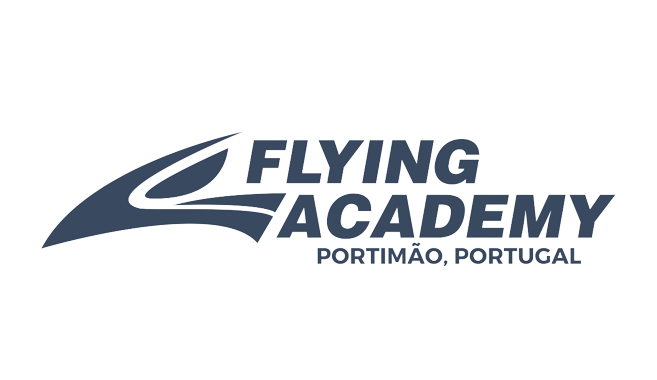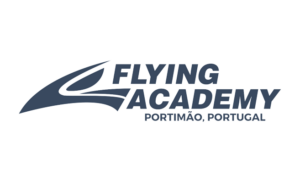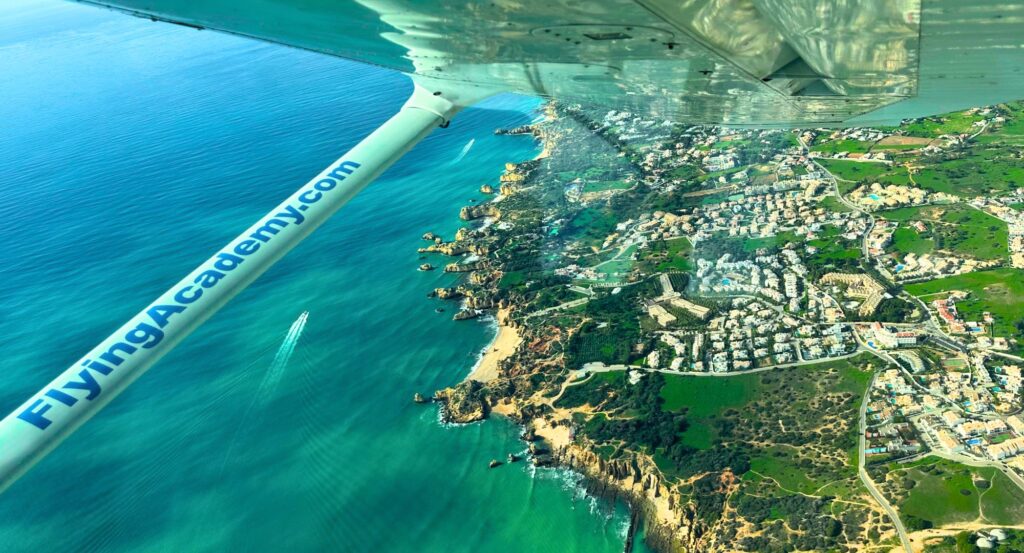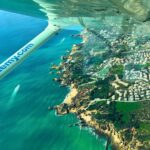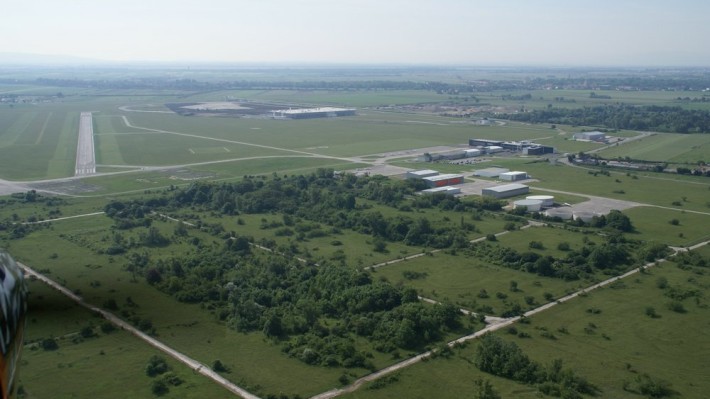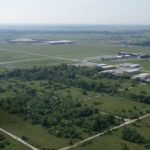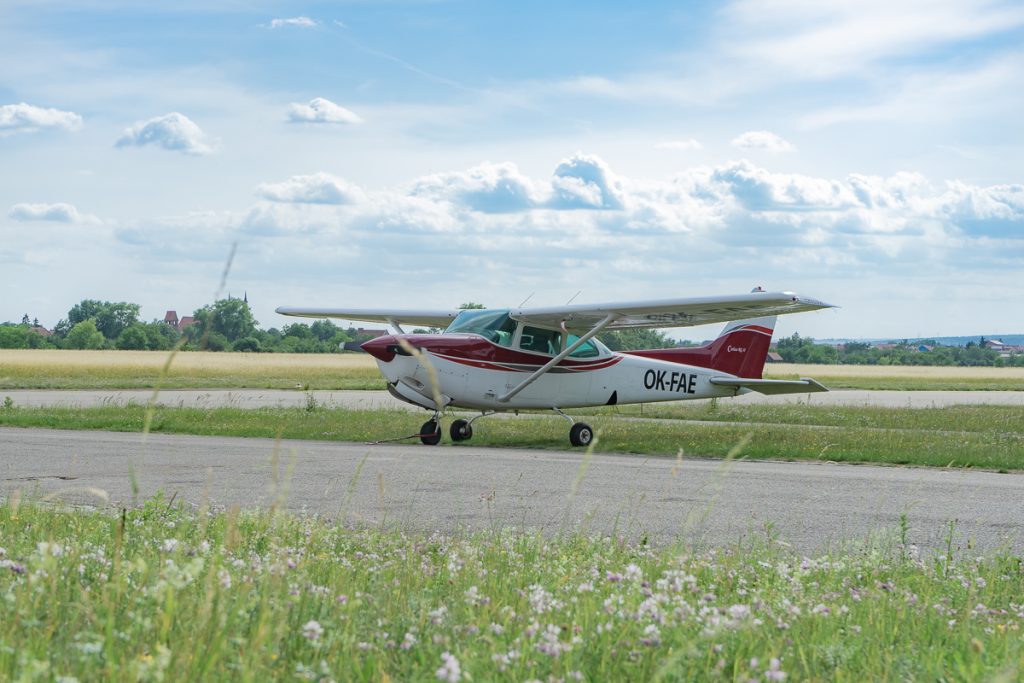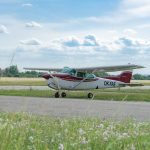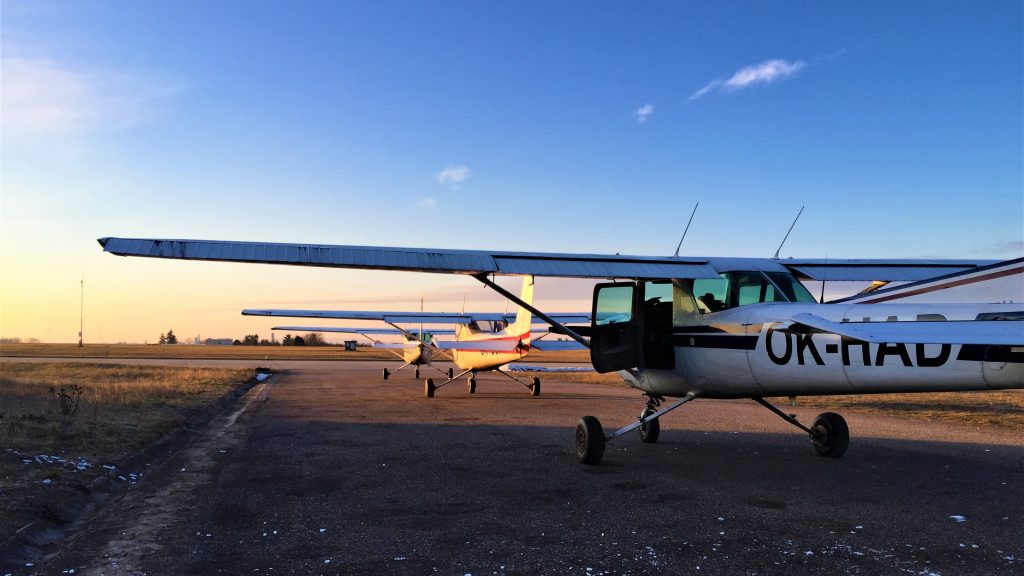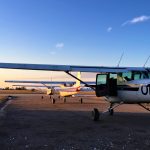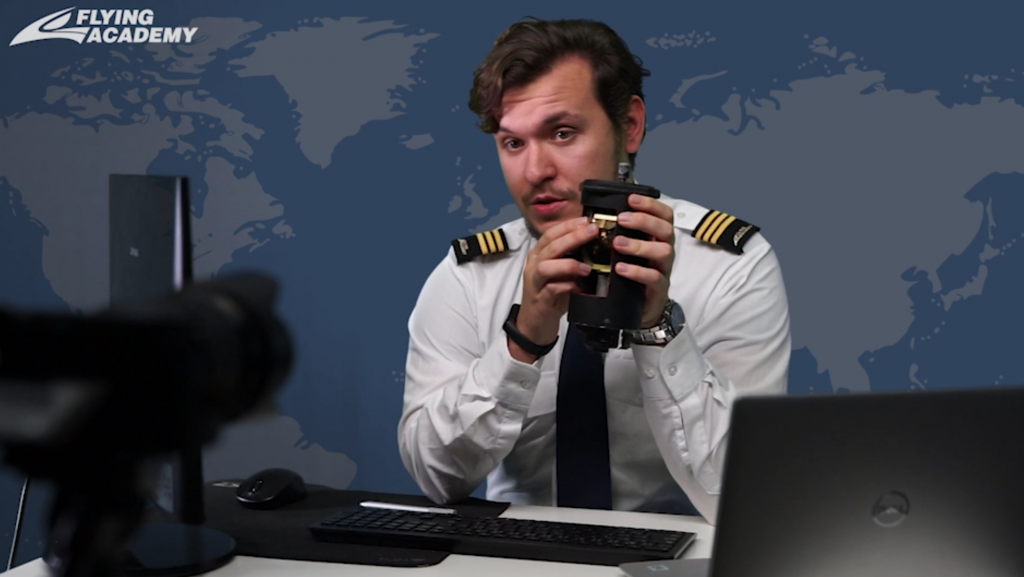EASA Integrated ATPL (A)
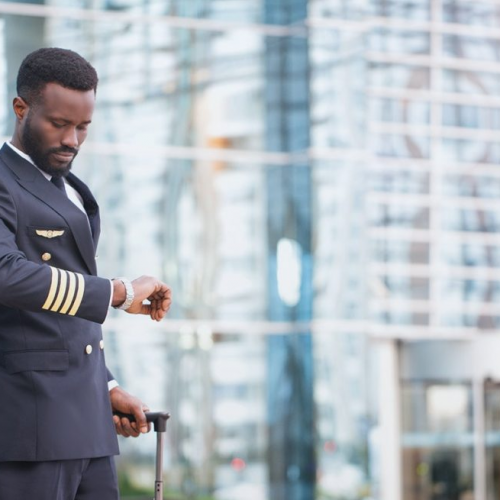
Curso ATPL Integrado (A)
Durante el EASA ATPL (Integrado A), te convertirás en piloto comercial en 14 meses de preparación intensiva, pasarás de no tener ninguna experiencia de vuelo a tener una licencia de piloto comercial multimotor de EASA, habilitación de instrumentos y ATPL congelado, incluido el curso de cooperación con múltiples tripulaciones. El EASA ATPL integrado, es un programa de estudio a tiempo completo con un horario fijo realizado para un grupo pequeño. Las atribuciones de la licencia obtenida son para actuar como piloto al mando (Capitán) o copiloto (Primer Oficial) en aeronaves dedicadas al transporte aéreo comercial.
¿Dónde puedo hacer mi formación?
- Praga, República Checa
- Bad Vöslau, Viena – Austria
- Portimão – Portugal
Entrenamiento de vuelo ATPL (A) integrado
El curso Integrado ATPL se divide en 6 fases de formación:
- Fase 1: desarrollo de habilidades básicas de vuelo
- Fase 2 – Iniciación al vuelo complejo
- Fase 3: Introducción a los vuelos comerciales
- Fase 4 – Habilidades de vuelo avanzadas
- Fase 5: Capacitación avanzada en prevención y entrenamiento de recuperación (UPRT)
- Fase 6: Curso de cooperación con tripulaciones múltiples (MCC)
Al final del programa, el alumno habrá volado: al menos 198 horas de las cuales, al menos 126,5 horas en Dúo (con FI), al menos 116 horas en IFR, al menos 55 horas en SPIC, al menos 55 horas en simulador y al menos 16,5 horas PIC.
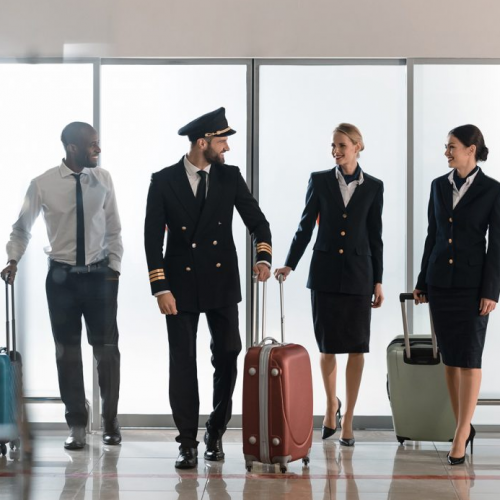
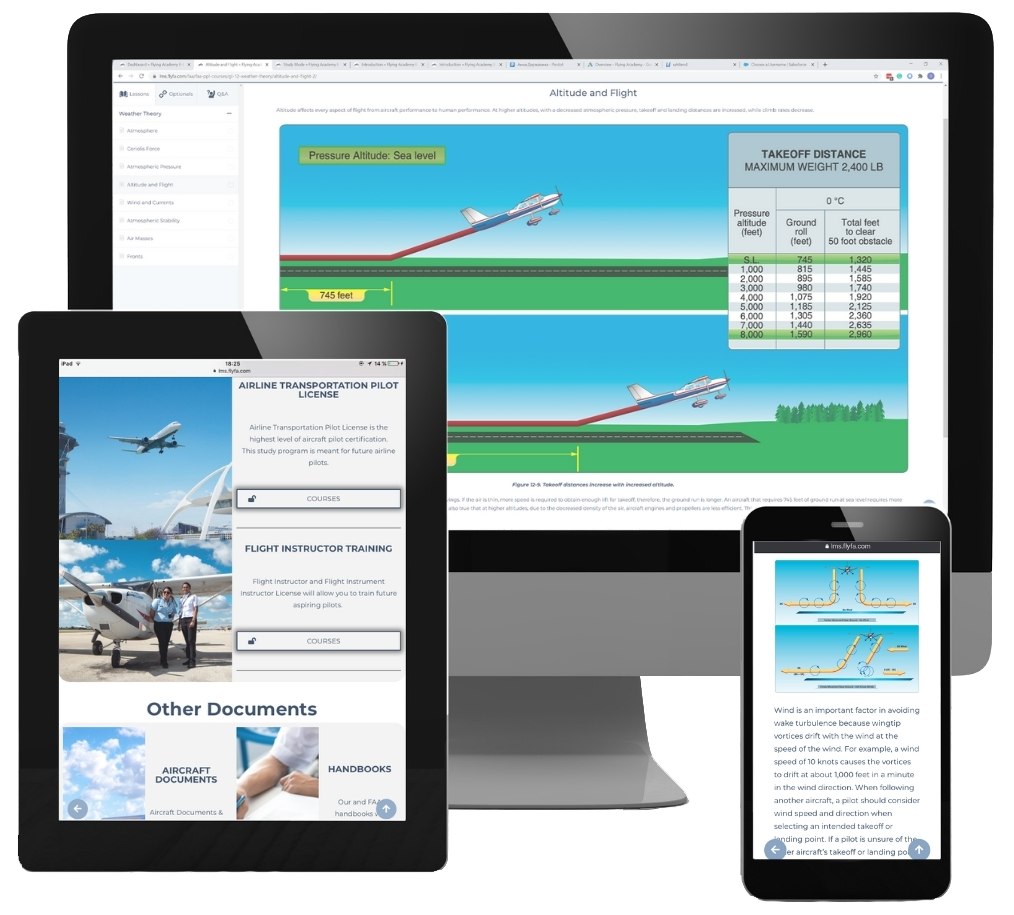
Entrenamiento en tierra ATPL (A) integrado
La preparación básica consta de 750 horas de teoría impartidas por nuestros profesores profesionales. Durante la formación, de las 14 materias ATPL, tendrás 13 exámenes teóricos ATPL, que deberás aprobar para demostrar un nivel de conocimientos suficiente y adecuado a las atribuciones del titular de una licencia ATPL(A) de acuerdo con los requisitos de la Parte FCL de EASA. Los exámenes se realizarán en la Autoridad de Aviación Civil y serán programados por Flying Academy.
Cronograma de entrenamiento

Entrenamiento de vuelo en fases
Obtenga una base sólida antes del primer vuelo en solitario. Desarrollar los conocimientos, habilidades y patrones de hábitos necesarios para un vuelo en solitario, incluidas las maniobras básicas, operaciones aeroportuarias, procedimientos de emergencia y maniobras de referencia en tierra.
Las áreas cubiertas incluyen:
- VFR duo
- VFR solo
- Preparación OACI + control de idioma
- Examen RT
- Reunión de información / reunión de retroalimentación
Desarrolla tus habilidades de la Fase anterior con maniobras avanzadas y practica vuelos de travesía.
Las áreas cubiertas incluyen:
- Duo VFR
- Duo IR (FNPT II Simulator)
- PIC Solo VFR vuelo de travesía
- Sesión Informativa/Evaluativa
Practica el vuelo nocturno para adquirir habilidades, experiencia y confianza en operaciones de travesía. Las áreas cubiertas incluyen:
- Duol VFR Nocturno
- Comandante en Solitario VFR de Travesía
- Comandante en Solitario VFR de Travesía
- Prueba de Progreso Doble
- Sesión Informativa/Evaluativa
Durante esta etapa, también completarás tu preparación teórica para los exámenes ATPL: 350 horas y aprobarás el resto de los exámenes en la Autoridad de Aviación Civil.
Las áreas cubiertas incluyen:
- Duo IR en Simulador FNPT II
- Duo IR
- Comandante en Solitario IR
- Duo VFR Nocturno
- Comandante en Solitario VFR Nocturno
- Duol MEP VFR
- Duo MEP IR
- Sesión Informativa/Evaluativa
Comprender cómo abordar los aspectos psicológicos y fisiológicos de los trastornos dinámicos en los aviones y desarrollar estrategias para mitigar estos efectos.
Las áreas cubiertas incluyen:
- VFR de dia duo
- Sesión informativa/ evaluativa
Familiarícese con los procesos y procedimientos en una cabina multipiloto durante MCC. El MCC lo hará
sentir más cómodo en la cabina del avión y, por lo tanto, le brindará una ventaja competitiva para la
evaluación de una aerolínea. Puedes optar por realizar tu formación en el Airbus 320 o el FPS Boeing 737NG.
Tiene opciones adicionales de capacitación de MCC en esta fase.
Puedes solicitar:
- APS MCC – Cooperación estándar entre tripulantes para pilotos de aerolíneas:
- Airbus 320 O FPS Boeing 737NG
Get the strong foundation prior to the first solo flight. Develop the knowledge, skills and habit patterns needed for a solo flight, including the basic maneuvers, airport operations, emergency procedures and ground reference maneuvers.
Areas covered include:
- Dual VFR
- VFR Solo
- ICAO preparation + language check
- RT exam
- Briefing/Debriefing
Develop your skills from the previous Phase with advanced maneuvers and practice cross-country flying.
Areas covered include:
- Dual VFR
- Dual IR (FNPT II Simulator)
- PIC Solo VFR Cross-Country
- Briefing/Debriefing
Practice night flying and get proficiency, experience and confidence in cross-country operations.
Areas covered include:
- Dual VFR Night
- SPIC VFR Cross-Country
- PIC Solo VFR Cross-Country
- Dual Progress Test
- Briefing/Debriefing
During this stage you will also complete your theoretical preparation for ATPL exams – 350 hours and pass the rest of the exams at the Civil Aviation Authority.
Areas covered include:
- FNPT II Dual IR
- Dual IR
- SPIC IR
- Dual VFR Night
- PIC Solo VFR Night
- MEP Dual VFR
- MEP Dual IR
- Briefing/Debriefing
Understand how to cope with the psychological and physiological aspects of dynamic upsets in airplanes and develop strategies to mitigate those effects.
Areas covered include:
- Dual Day-VFR
- Briefing/Debriefing
Get familiar with processes and procedures in a multi-pilot cockpit during MCC. MCC will make you feel more comfortable in the airliner cockpit and therefore give you a competitive advantage for an airline assessment. You can choose to do your training on the Airbus 320 or the FPS Boeing 737NG.
You have additional MCC training options in this phase.
You can request for:
- APS MCC – Airline Pilot Standard Multi-Crew Cooperation:
- Airbus 320 OR FPS Boeing 737NG
Requisitos
17 años mínimo
El piloto debe tener al menos 17 años para inscribirse y 18 años para poder obtener una Licencia de Piloto Comercial.
Tener certificado médico de clase 1
Debe estar en buena forma física para vuelos comerciales (capaz de poseer el Certificado Médico de Piloto EASA Clase 1)
Calificaciones
Debe poder leer, escribir, comprender y hablar inglés con fluidez y tener conocimientos básicos de matemáticas y física
Por qué elegir Flying Academy
Acceso a un innovador Sistema de Gestión del Aprendizaje
Amplia Comunidad Internacional
Flota de primera línea
Instructores Experimentados y Talentosos
Ubicado en EE. UU. Y Europa
Aulas virtuales de vanguardia
Entrenamiento completo en tierra desde la comodidad de su hogar
Trabajo de curso interactivo, verificación de etapas y progreso supervisado
Consultor de entrenamiento de vuelo dedicado y soporte al cliente
Ubicaciones
Mas cursos
Training Timeline

Flight Training in Phases
Get the strong foundation prior to the first solo flight. Develop the knowledge, skills, and habit patterns needed for a solo flight, including the basic maneuvers, airport operations, emergency procedures, and ground reference maneuvers.
Areas covered include:
- Dual VFR
- VFR Solo
- ICAO preparation + language check
- RT exam
- Briefing/Debriefing
Develop your skills from the previous Phase with advanced maneuvers and practice cross-country flying.
Areas covered include:
- Dual VFR
- Dual IR (FNPT II Simulator)
- PIC Solo VFR Cross-Country
- Briefing/Debriefing
Practice night flying and get proficiency, experience and confidence in cross-country operations.
Areas covered include:
- Dual VFR Night
- SPIC VFR Cross-Country
- PIC Solo VFR Cross-Country
- Dual Progress Test
- Briefing/Debriefing
During this stage you will also complete your theoretical preparation for ATPL exams – 350 hours and pass the rest of the exams at the Civil Aviation Authority.
Areas covered include:
- FNPT II Dual IR
- Dual IR
- SPIC IR
- Dual VFR Night
- PIC Solo VFR Night
- MEP Dual VFR
- MEP Dual IR
- Briefing/Debriefing
Understand how to cope with the psychological and physiological aspects of dynamic upsets in airplanes and develop strategies to mitigate those effects.
Areas covered include:
- Dual Day-VFR
- Briefing/Debriefing
Get familiar with processes and procedures in a multi-pilot cockpit during MCC. MCC will make you feel more comfortable in the airliner cockpit and therefore give you a competitive advantage for an airline assessment. You can choose to do your training on the Airbus 320 or the FPS Boeing 737NG.
You have additional MCC training options in this phase.
You can request for:
- APS MCC – Airline Pilot Standard Multi-Crew Cooperation:
- Airbus 320 OR FPS Boeing 737NG
Get the strong foundation prior to the first solo flight. Develop the knowledge, skills and habit patterns needed for a solo flight, including the basic maneuvers, airport operations, emergency procedures and ground reference maneuvers.
Areas covered include:
- Dual VFR
- VFR Solo
- ICAO preparation + language check
- RT exam
- Briefing/Debriefing
Develop your skills from the previous Phase with advanced maneuvers and practice cross-country flying.
Areas covered include:
- Dual VFR
- Dual IR (FNPT II Simulator)
- PIC Solo VFR Cross-Country
- Briefing/Debriefing
Practice night flying and get proficiency, experience and confidence in cross-country operations.
Areas covered include:
- Dual VFR Night
- SPIC VFR Cross-Country
- PIC Solo VFR Cross-Country
- Dual Progress Test
- Briefing/Debriefing
During this stage you will also complete your theoretical preparation for ATPL exams – 350 hours and pass the rest of the exams at the Civil Aviation Authority.
Areas covered include:
- FNPT II Dual IR
- Dual IR
- SPIC IR
- Dual VFR Night
- PIC Solo VFR Night
- MEP Dual VFR
- MEP Dual IR
- Briefing/Debriefing
Understand how to cope with the psychological and physiological aspects of dynamic upsets in airplanes and develop strategies to mitigate those effects.
Areas covered include:
- Dual Day-VFR
- Briefing/Debriefing
Get familiar with processes and procedures in a multi-pilot cockpit during MCC. MCC will make you feel more comfortable in the airliner cockpit and therefore give you a competitive advantage for an airline assessment. You can choose to do your training on the Airbus 320 or the FPS Boeing 737NG.
You have additional MCC training options in this phase.
You can request for:
- APS MCC – Airline Pilot Standard Multi-Crew Cooperation:
- Airbus 320 OR FPS Boeing 737NG
